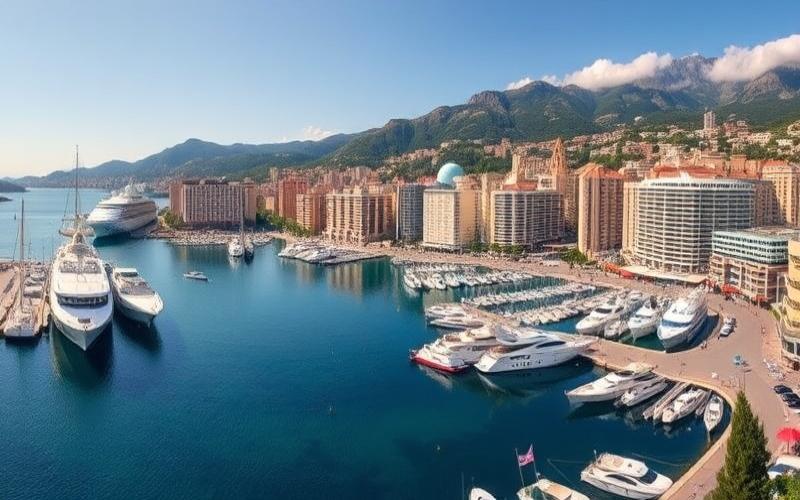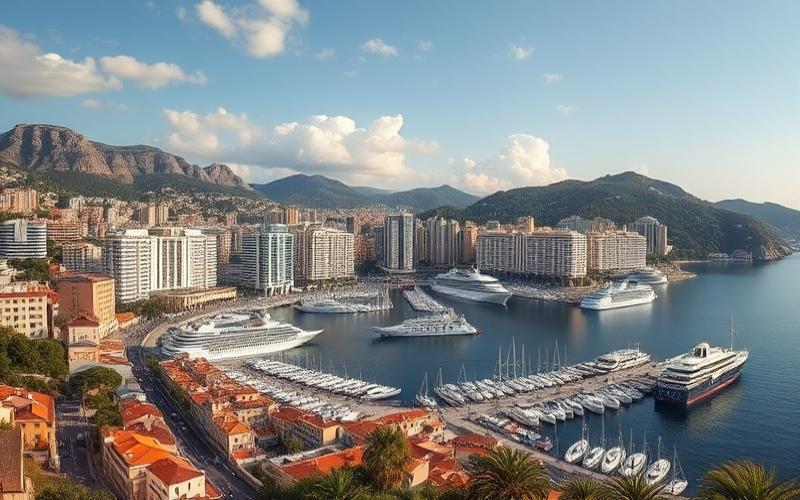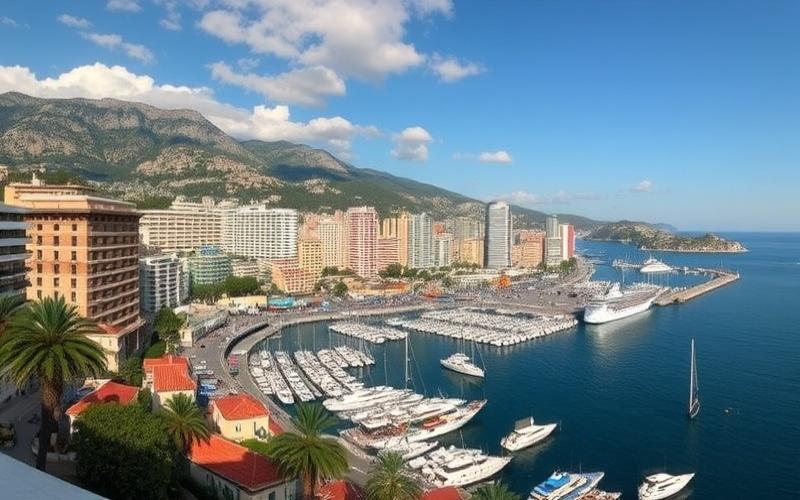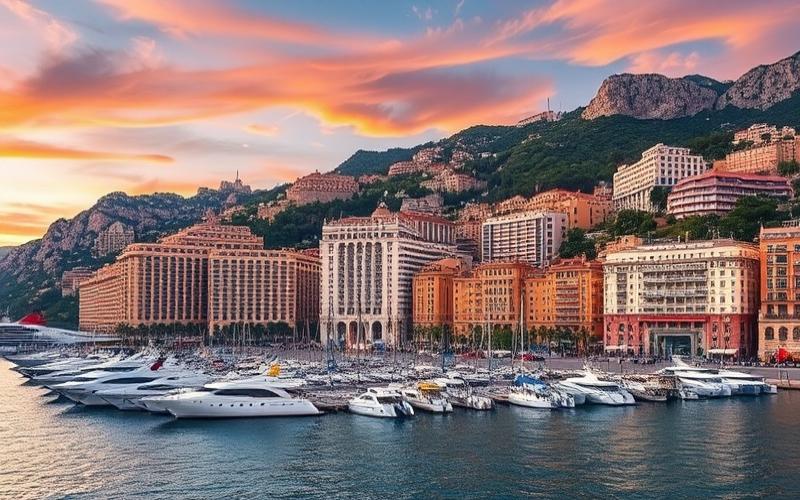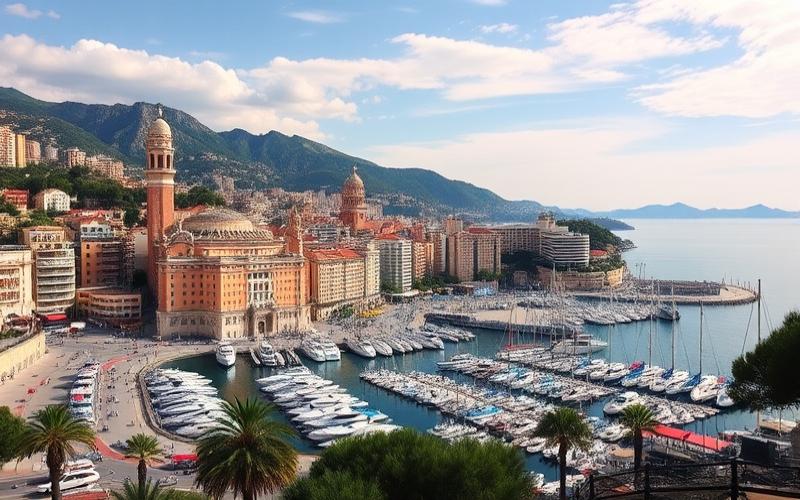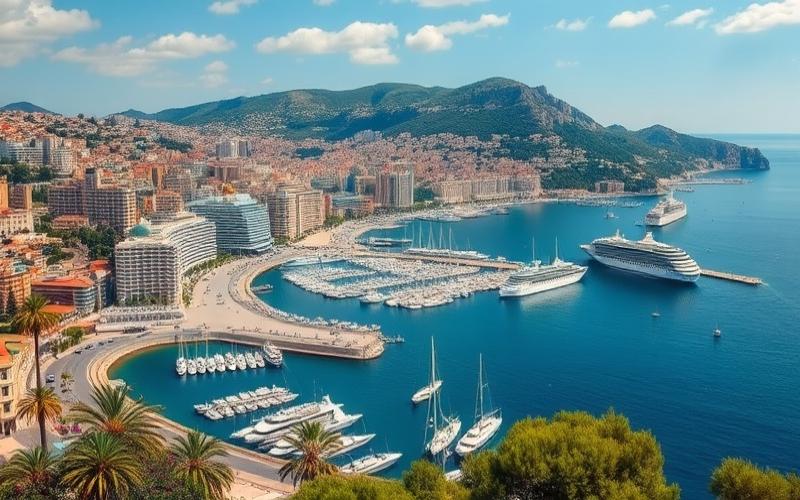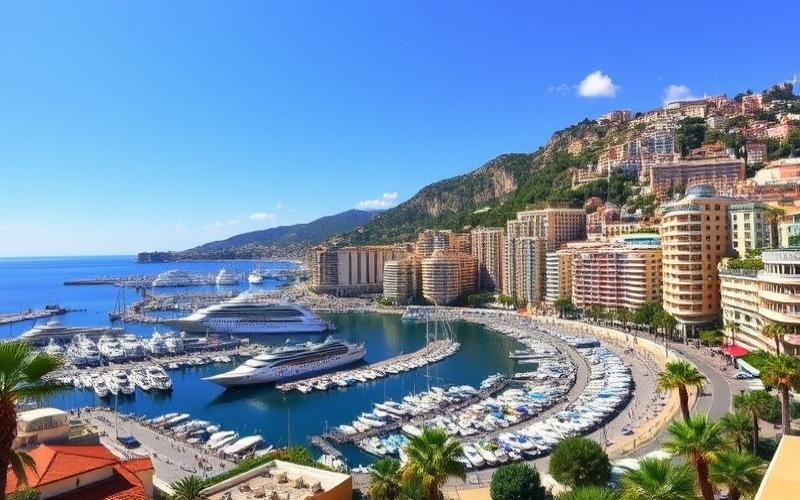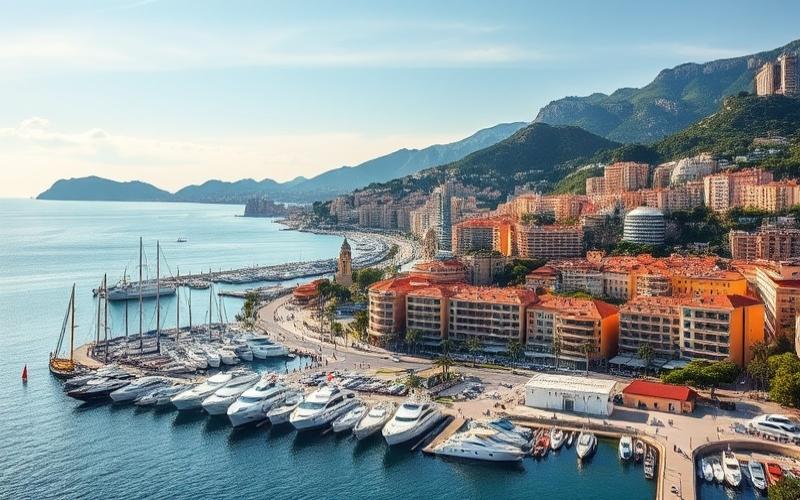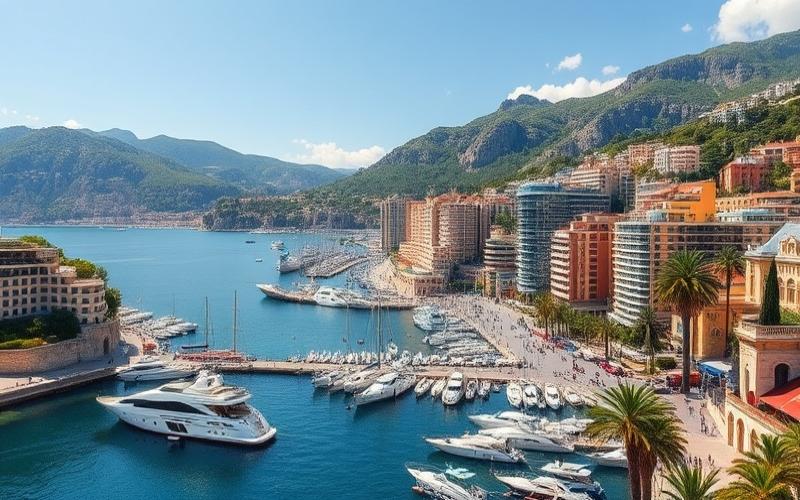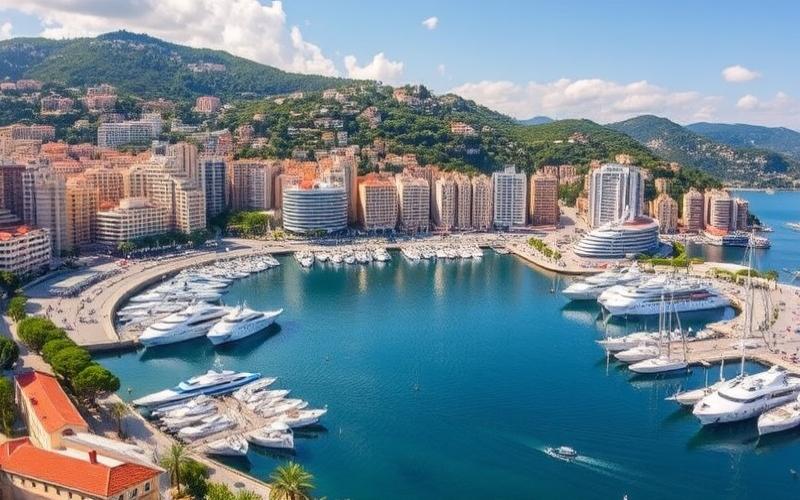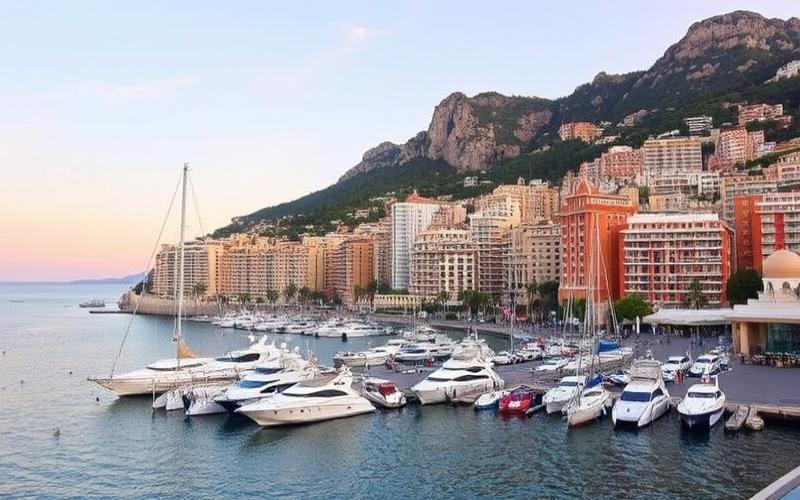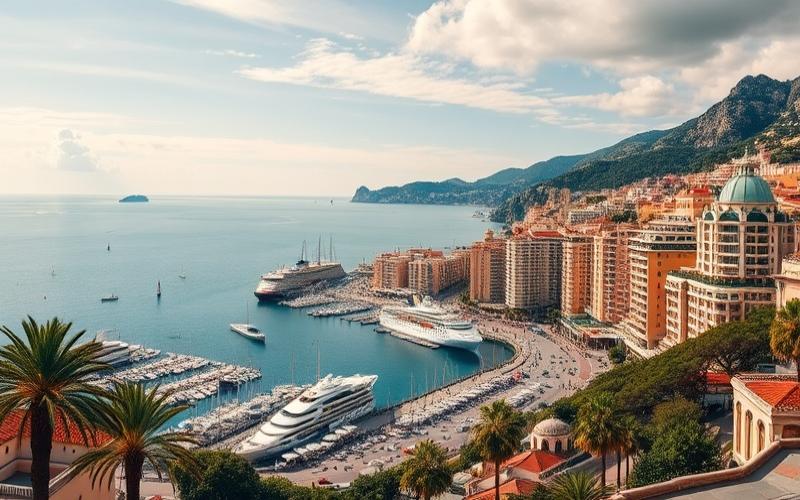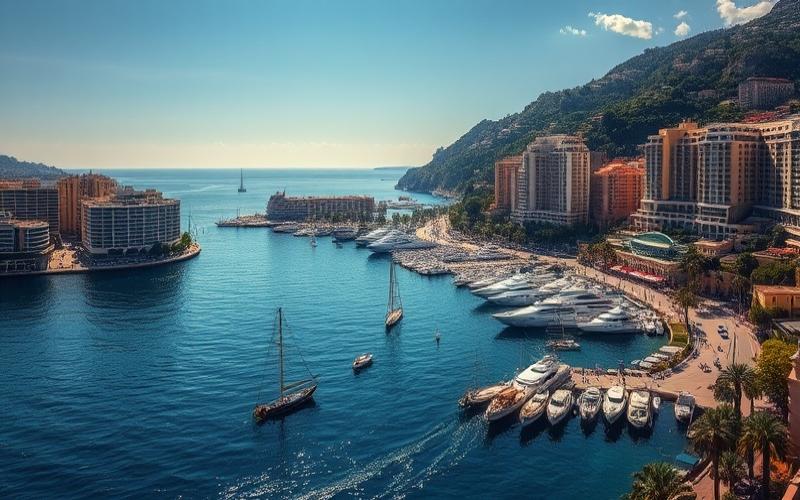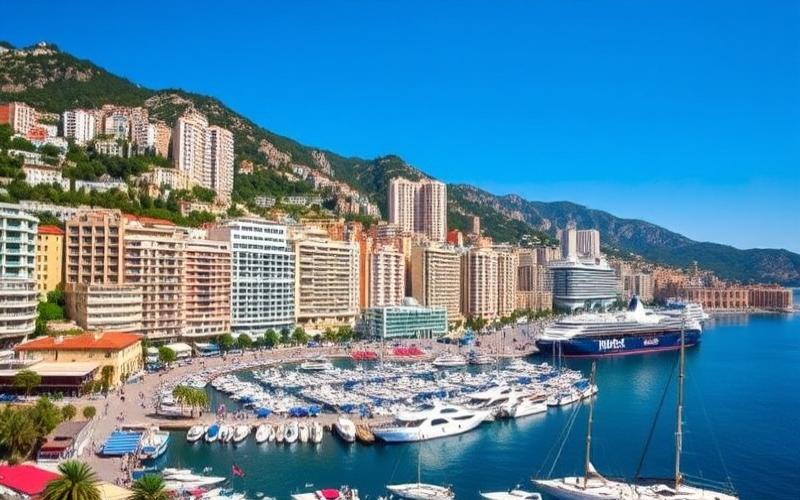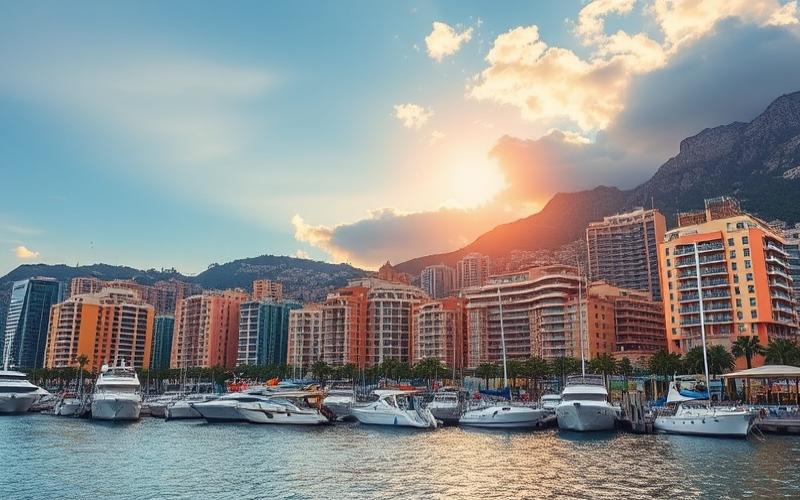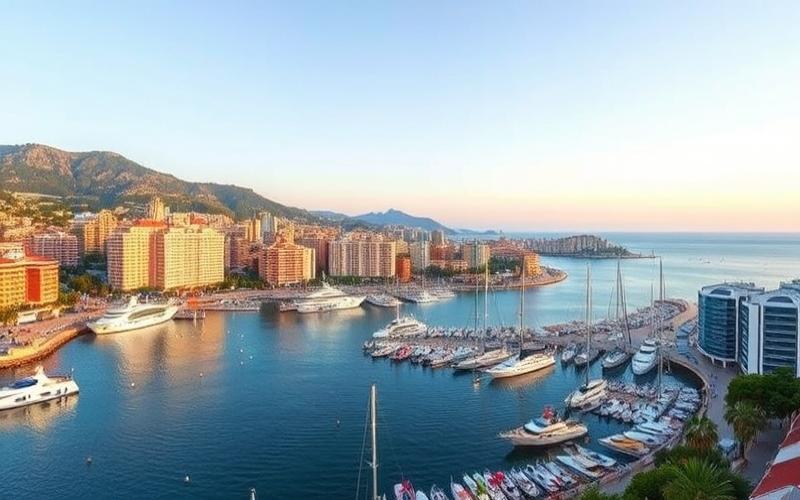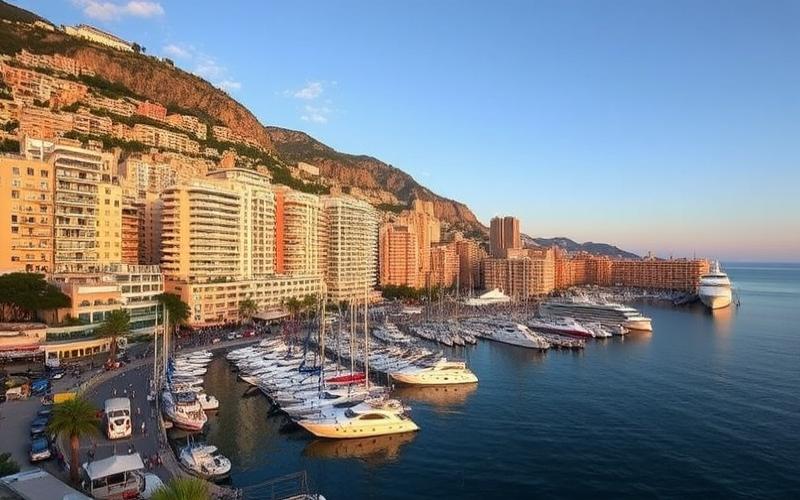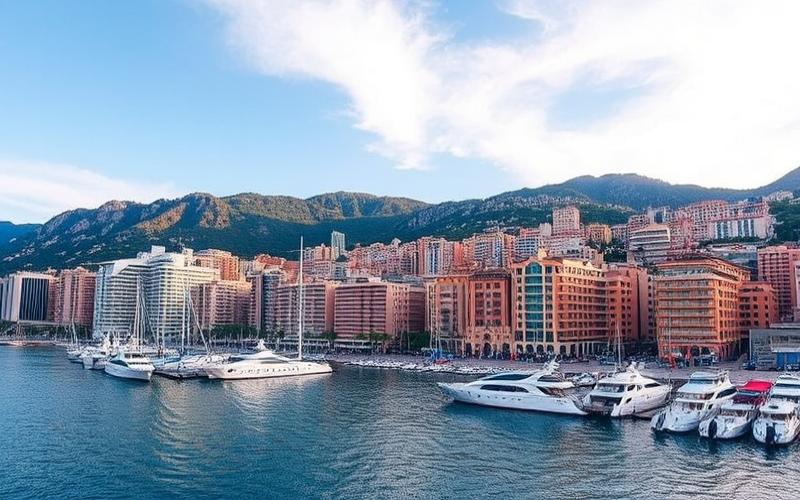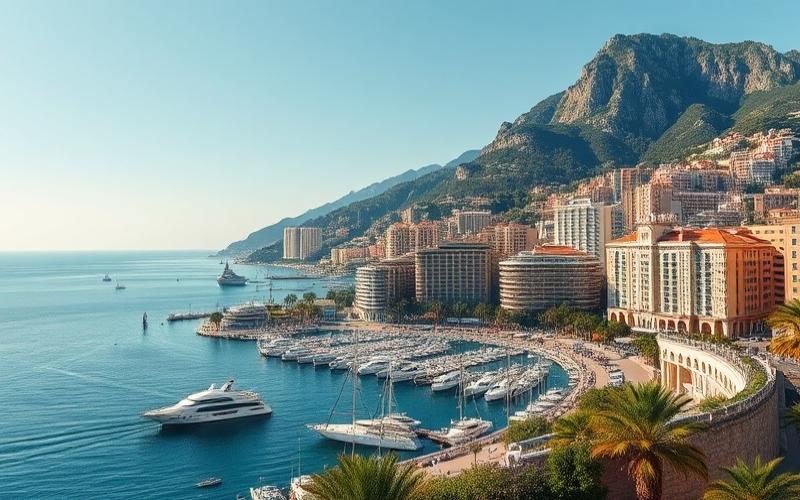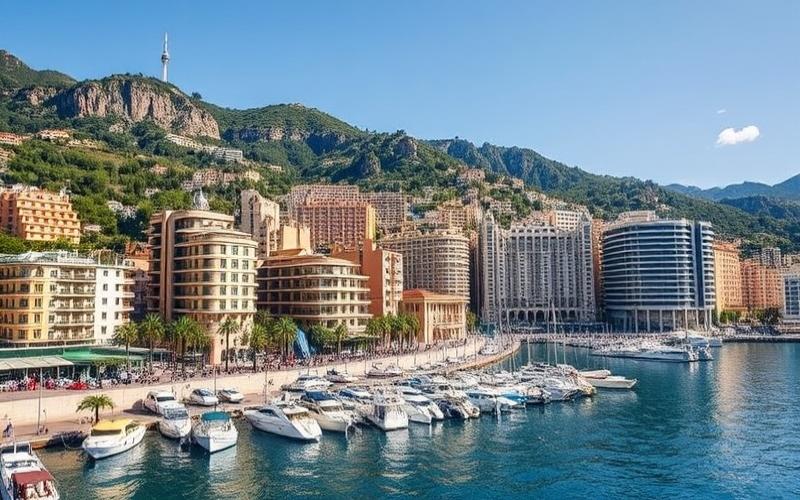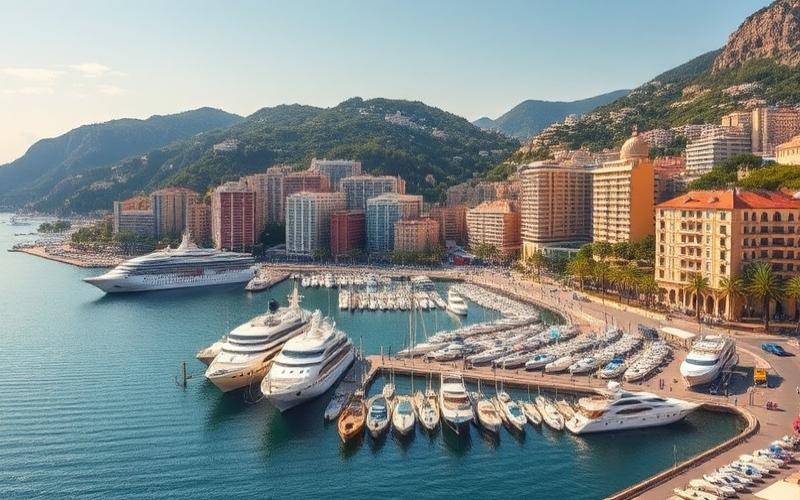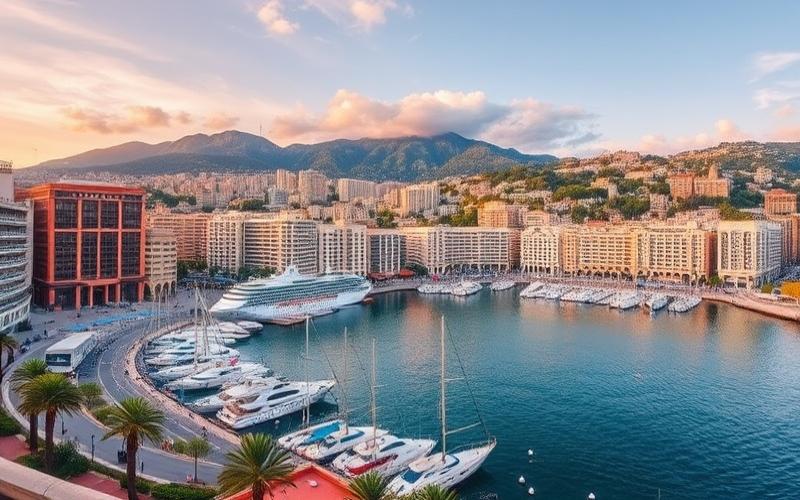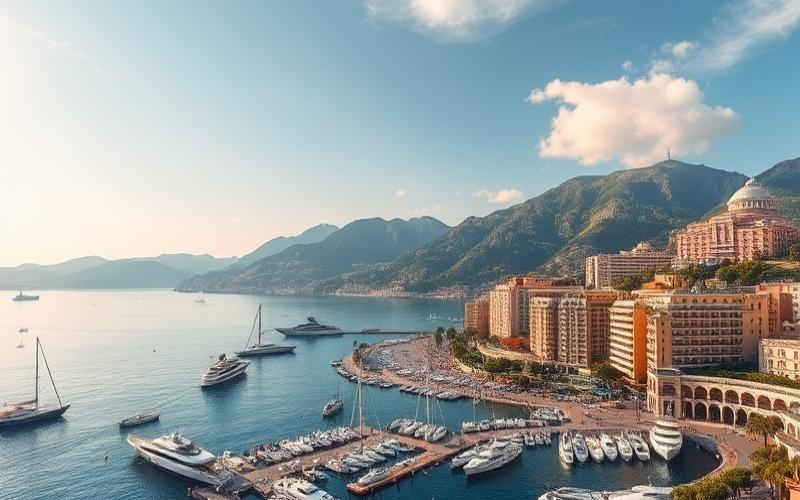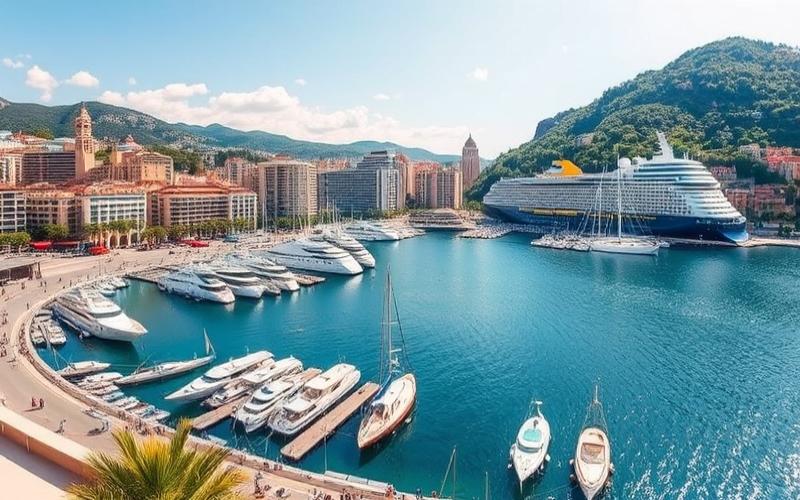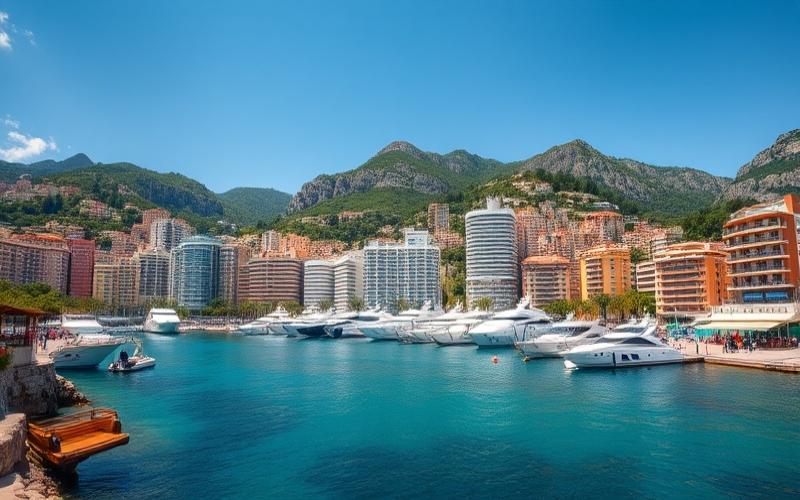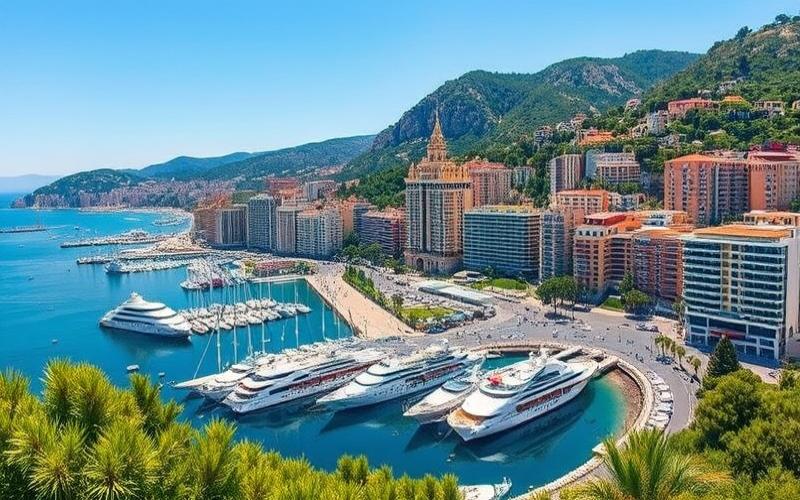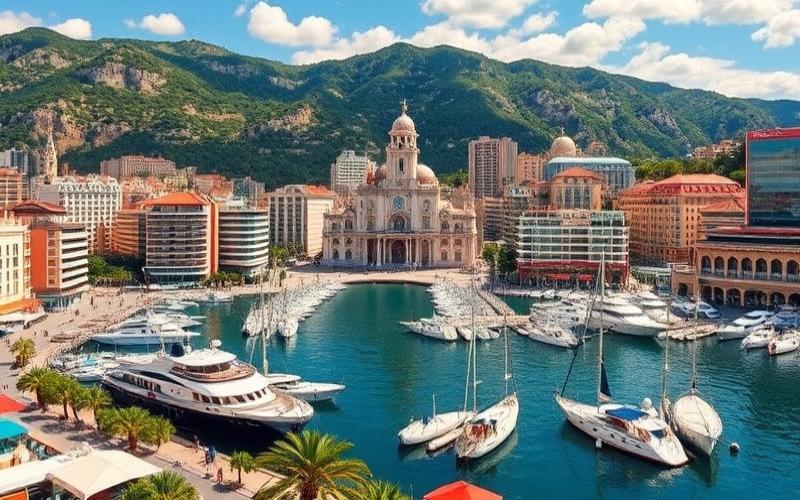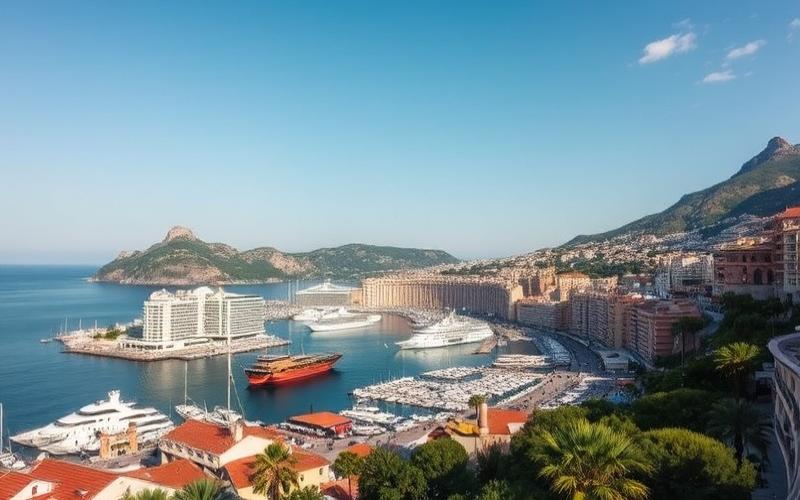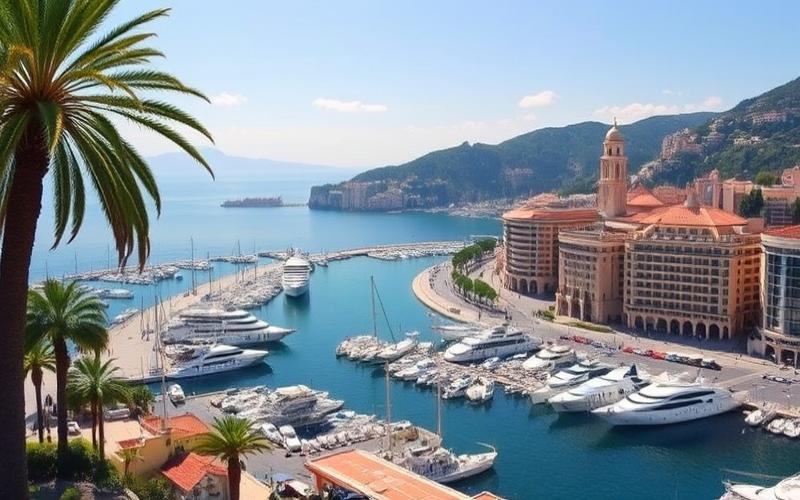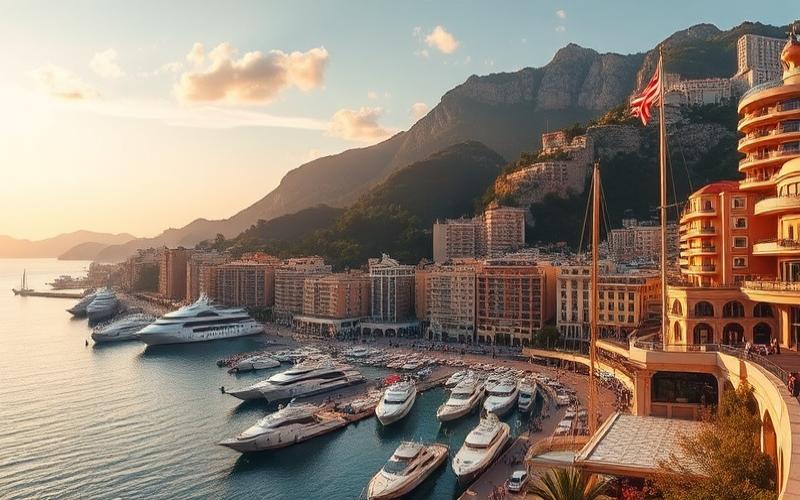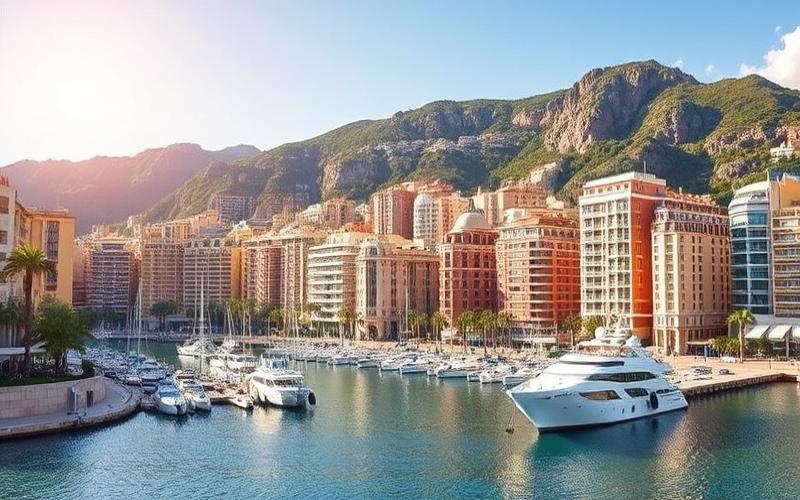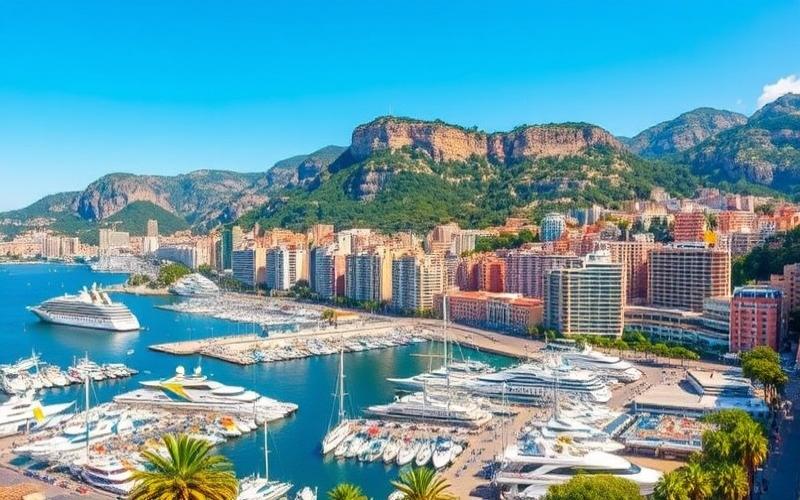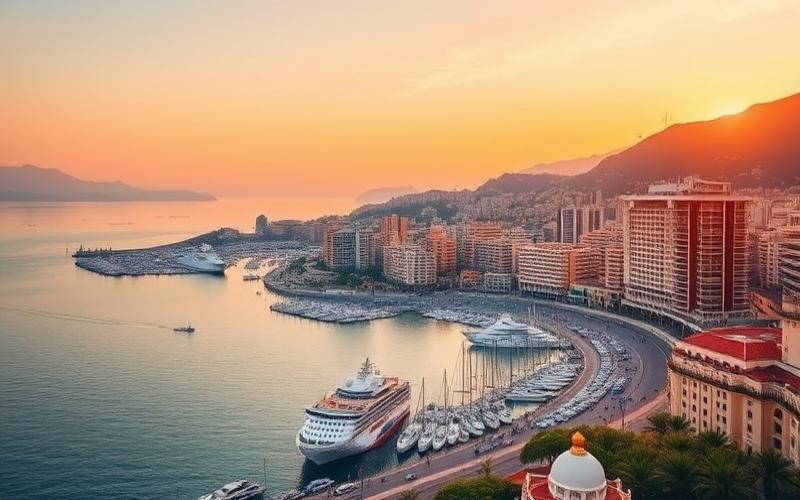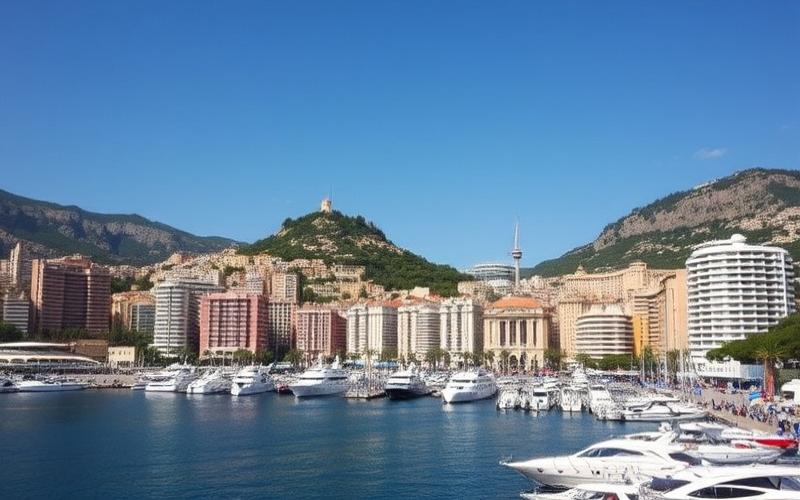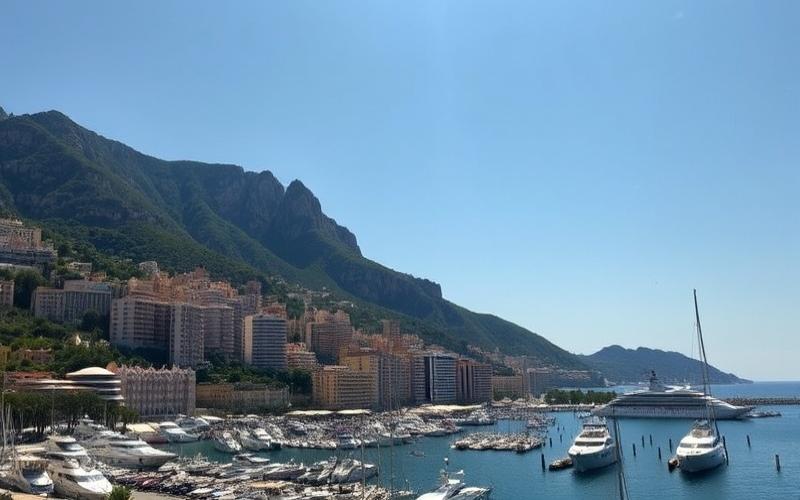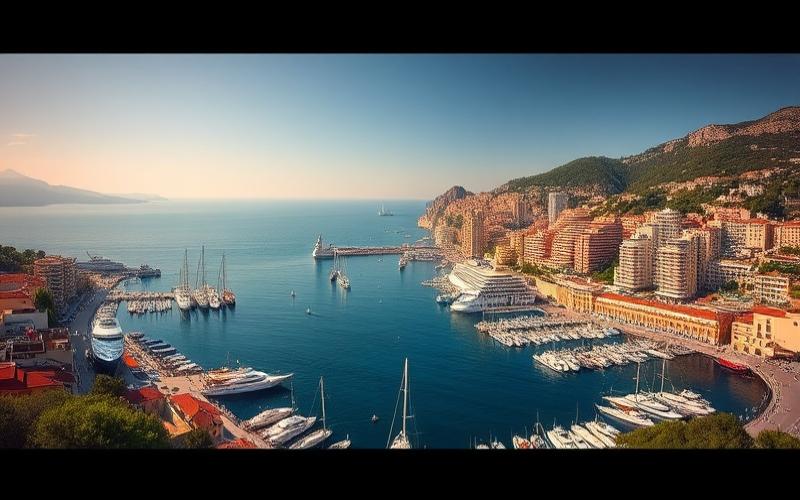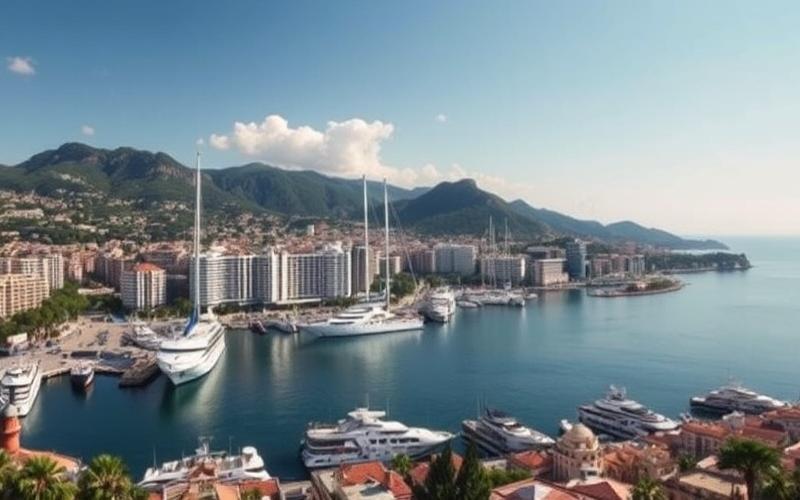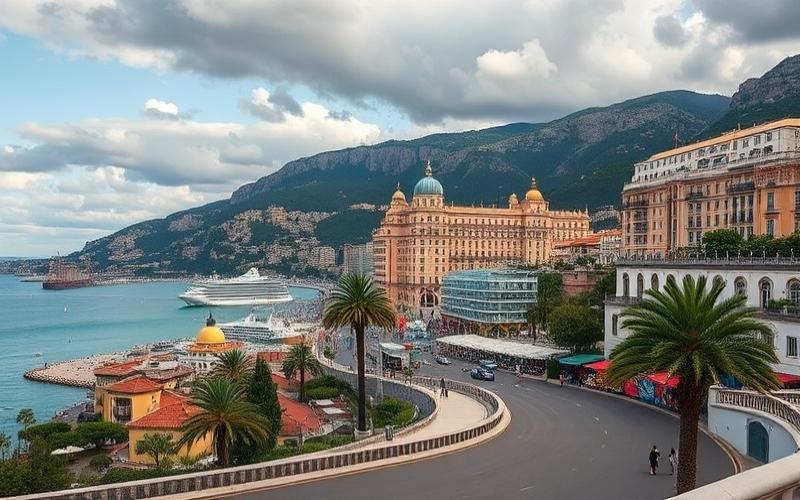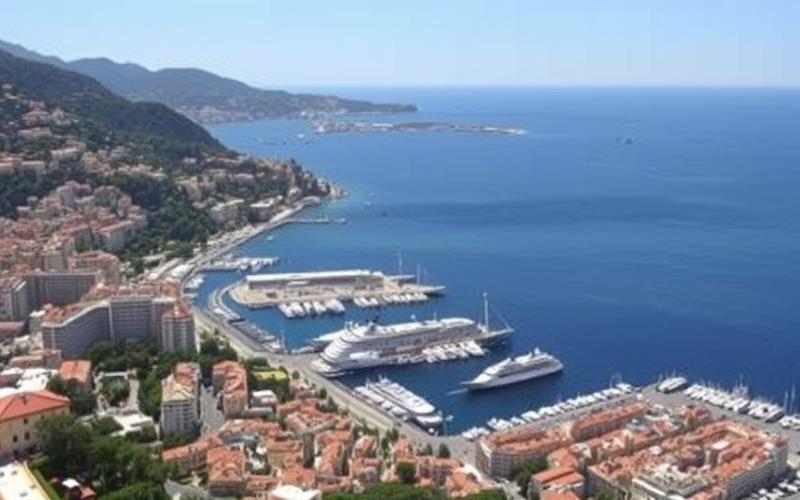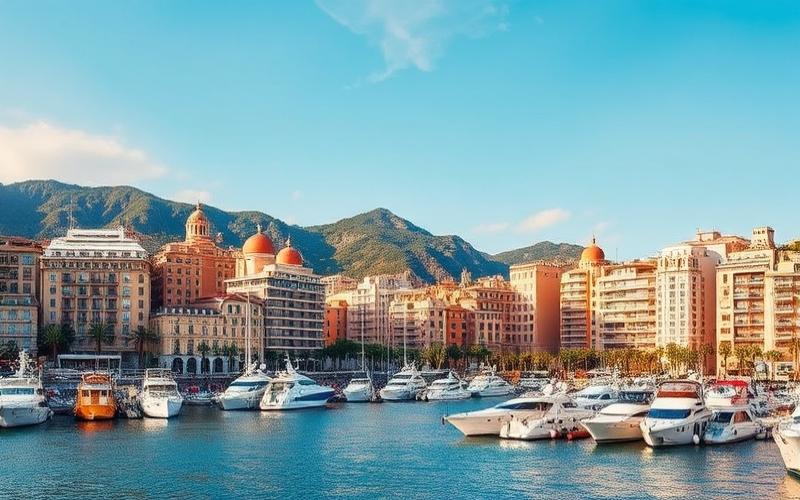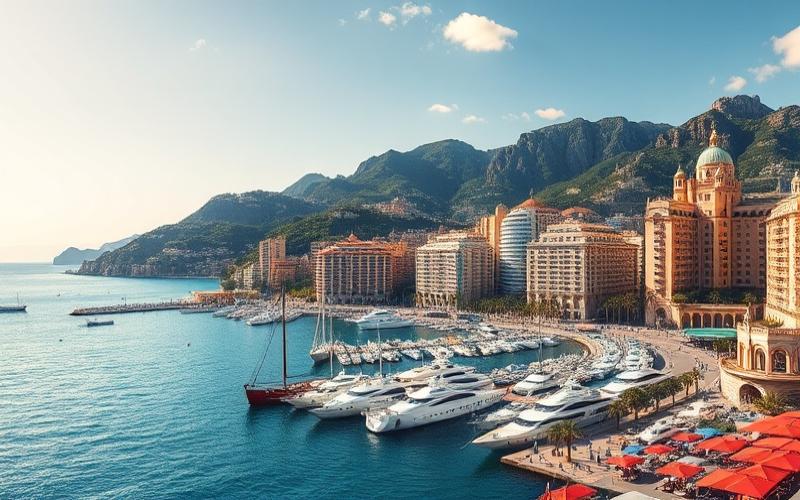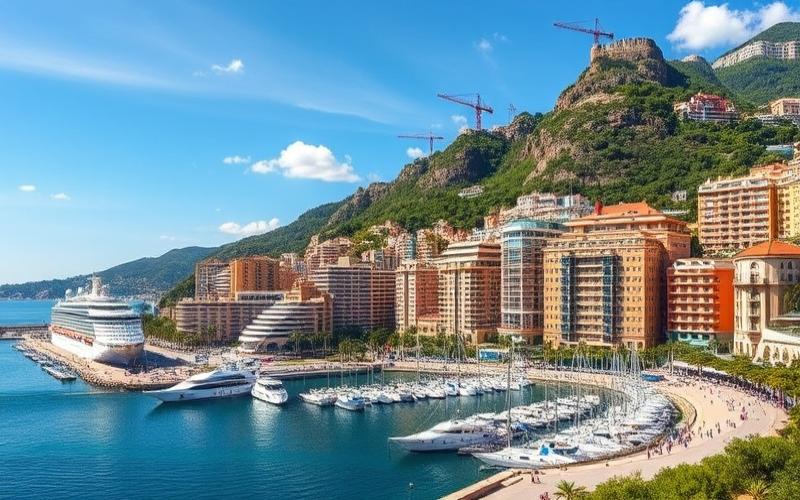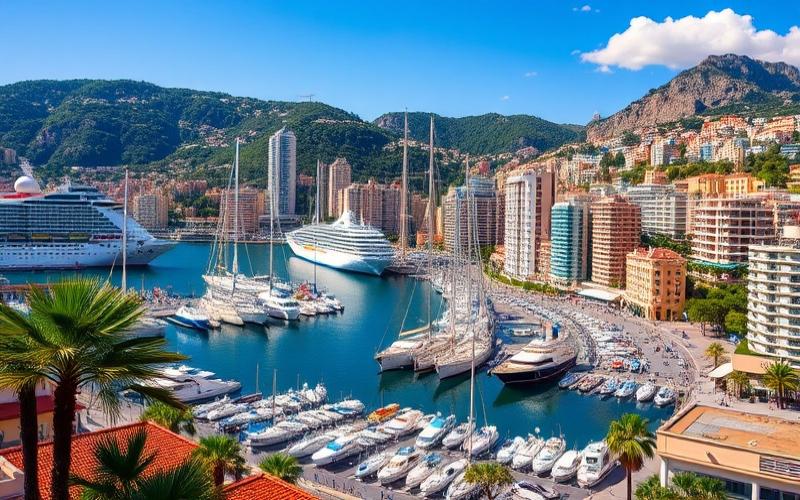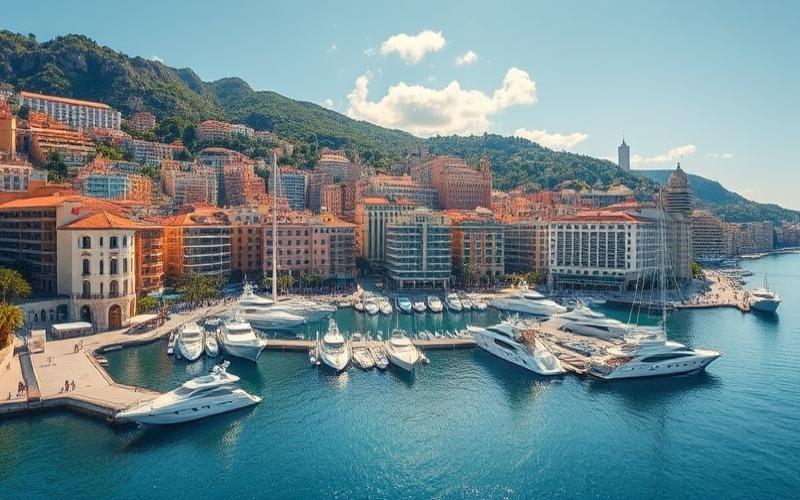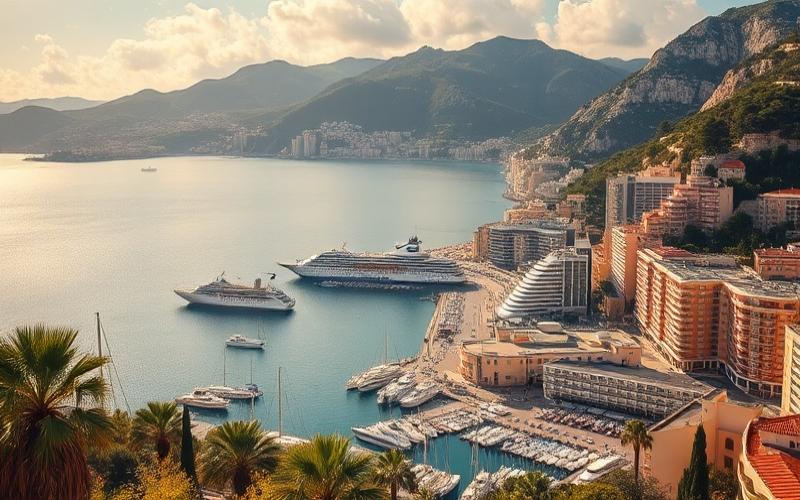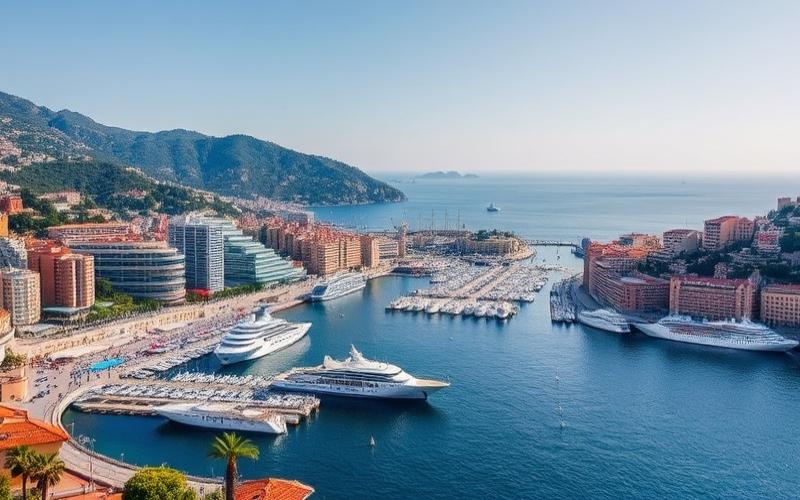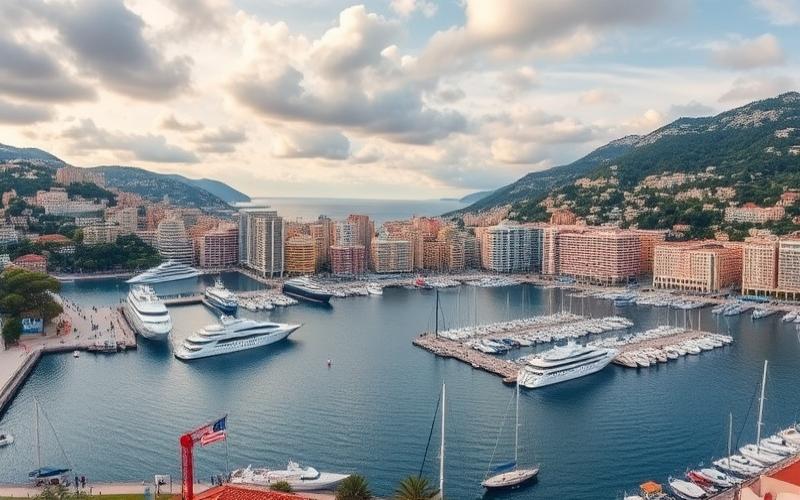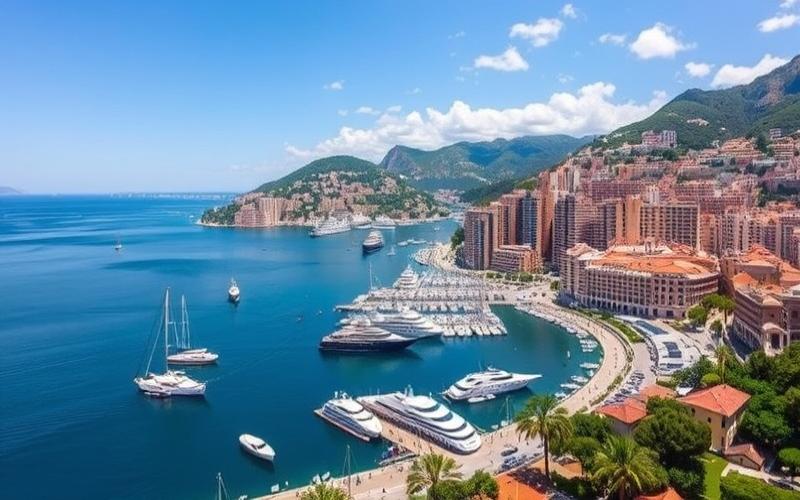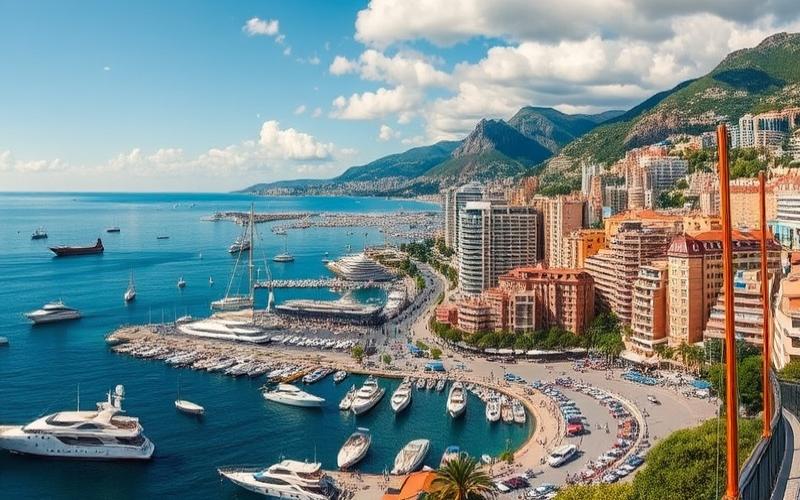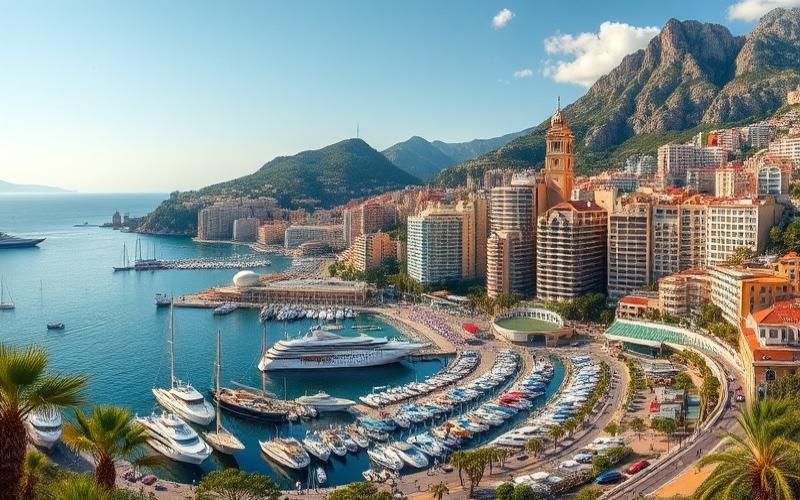
 Published on and written by Cyril Jarnias
Published on and written by Cyril Jarnias
Monaco: A Tax Haven for Real Estate Investors
Monaco, this luxurious microstate nestled on the French Riviera, isn’t just a paradise for lovers of glamour and sunshine, but also offers attractive tax opportunities for real estate investors.
In a market where luxury real estate attracts buyers from around the world, the Principality of Monaco stands out for its advantageous tax policy, notably:
- No income tax
- Legal security
- Economic stability
This particularly favorable tax environment stimulates interest from investors seeking to diversify their portfolio while benefiting from a safe and prestigious setting.
A Strategic and Lucrative Investment
Exploring the various tax levers available in Monaco reveals a world where real estate investment can be not only lucrative, but also strategically optimal for effective wealth management.
Good to Know:
Monaco ranks among the most expensive real estate markets in the world, but offers in return unique tax advantages and exceptional heritage value.
The Secrets of Local Taxation in Monaco
Monaco’s tax regime is distinguished by the total absence of income tax for residents, except for French nationals subject to a bilateral agreement with France.
This rule, in effect since 1869, means that any individual residing in the Principality – with the French exception – pays no tax on personal income, including salaries, dividends, and interest.
| Resident’s Nationality | Income Tax in Monaco |
| Non-French Resident | None |
| French Resident | Taxation according to French legislation |
“A British investor based in Monaco emphasizes: ‘The local taxation allowed me to optimize my real estate investments without fearing confiscatory taxation on my capital gains or rental income.’”
The Attractiveness of the Monegasque Tax System
The attractiveness of the Monegasque tax system is particularly evident in the real estate sector:
- No tax on real estate capital gains upon resale for individuals.
- No annual property tax, unlike common practices in many European countries.
- Investors thus benefit from an extremely advantageous tax framework for buying, renting, or selling real estate properties.
Local Levies
Local levies are mainly limited to:
- VAT (aligned with that applied in France): standard rate at 20%, possible reduced rates depending on the nature of goods and services.
- Stamp duty:
– 1% upon signing a lease agreement,
– 4.55% upon purchase or resale between individuals,
– up to 6.5% if the property is held via a company.
Main Tax Advantages
- No income tax
- No property tax nor residence tax
- No taxation on personal real estate capital gains
- No inheritance rights between ascendants and direct descendants (rate: 0%)
- Moderate rights between siblings or distant relatives
Many international entrepreneurs testify to having chosen Monaco precisely for this exceptional tax context. A Swiss real estate developer states: “The total absence of recurrent taxation allows me optimal and secure wealth management.”
In summary:
Monaco offers an environment almost exempt from the main direct national and local taxes that usually apply elsewhere. This context naturally attracts both private and institutional investors wishing to fully benefit from the fruits of their investments while enjoying Monegasque prestige.
Good to Know:
Monaco’s tax regime, known for the absence of income tax for residents – with the exception of French nationals – plays a key role in attracting real estate investors. This favorable tax climate encourages foreign investments, reinforced by the absence of tax on real estate capital gains. Property taxes and other local levies are maintained at relatively low levels, thus offering an environment conducive to investors. A concrete example of these tax advantages is the testimony of a British investor who, by purchasing a property in Monaco, was able to reinvest his gains into buying other properties without worrying about heavy tax deductions. This unique tax framework places Monaco among the most sought-after destinations for real estate purchase, providing stability and attractive capital growth for savvy investors.
Favorable International Agreements to Avoid Double Taxation
International agreements to avoid double taxation play a crucial role in Monaco’s attractiveness for real estate investors. By preventing double taxation on real estate income, these agreements allow investors not to be taxed twice on the same income: once in Monaco, and again in their country of residence or origin. This translates into substantial savings and notable tax optimization.
Main Agreements in Force Between Monaco and Other Countries
| Country | Nature of the Agreement | Main Tax Implications |
|---|---|---|
| France | Specific Agreement | Avoids double taxation; frames taxation of French nationals in Monaco |
| Luxembourg | Comprehensive DTA | Covers income and wealth tax; secures cross-border investments |
| United Arab Emirates | DTA | Promotes bilateral investments, eliminates double taxation on real estate income |
| Qatar | Agreement similar to UAE | Same as above |
| Malta | Agreement covering income tax | Strengthens tax security |
| Mauritius, Montenegro, Seychelles, Guernsey… | Various Agreements | Clear allocation of taxing rights |
Monaco has signed 36 bilateral agreements with various European countries (Germany, Italy, Austria…), as well as with Australia, India, and the United States.
Positive Impact for Real Estate Investors
- Elimination of double taxation risk: Income from real estate properties located in Monaco or held by Monegasque residents is taxed only once according to precise rules. This allows foreign or expatriate investors to achieve significant savings.
- Clarity and predictability: The conventions clearly establish which country is competent to tax each category of income.
- Amicable procedure in case of tax dispute: All these agreements include a procedure allowing a taxpayer solicited in two jurisdictions simultaneously to request an amicable settlement from the competent authorities.
“The amicable procedure… allows taxpayers soliciting two jurisdictions simultaneously… an amicable settlement with the competent authorities.”
Role Reinforced by the OECD Multilateral Convention
The multilateral convention established under the aegis of the OECD imposes:
- Automatic or on-demand exchange of tax information,
- High standards in terms of transparency,
- Increased international cooperation,
This mechanism strongly reassures investors regarding compliance with international law while significantly limiting the risk related to divergent interpretations between tax administrations.
Concrete Advantages for a Real Estate Investor:
- Direct savings: No cumulative payment of property/income tax in multiple jurisdictions
- Increased legal security
- Protection against abusive reclassification
- Facilitated international wealth optimization
The entire Monegasque treaty network thus offers investors effective protection against any form of double taxation as well as a stable and transparent regulatory environment durably favoring their economic interests.
Good to Know:
Real estate investors in Monaco benefit from various international agreements avoiding double taxation, which optimizes their profitability. Monaco has indeed established tax treaties with several countries, such as France, Luxembourg, and Germany, which allow investors not to be taxed twice on their real estate income. These agreements result in substantial tax savings, ensuring that generated income is taxed only in the investor’s country of residence or in Monaco. The OECD reinforces these advantages through its multilateral convention, thus promoting tax transparency, which reassures investors and secures their investments. As an example, the agreement with France guarantees that taxes paid in Monaco will not be taxed again in France, drastically simplifying the taxation of Franco-Monegasque investors.
Property and Residence Tax: A Tax Haven for Investors
In Monaco, the absence of property tax and residence tax constitutes a decisive tax advantage for real estate investors. Unlike the majority of European countries, no annual tax is levied on the ownership or occupancy of a real estate property in the Principality. This extremely light tax regime makes Monaco a privileged destination, often referred to as a tax haven for high-end real estate investments.
Real estate owners in Monaco pay neither property tax nor residence tax.
| Type of Tax | Monaco | France | Italy | Spain |
| Property Tax | None | Yes (variable) | Yes | Yes |
| Residence Tax | None | Phased out (still in effect in some cases) | Yes | Yes |
| Wealth Tax | None | IFI applicable | ISF abolished | Regional ISF |
This advantageous tax situation strongly encourages investments in high-value-added real estate. Wealthy buyers often favor Monaco where they can diversify their assets without being subject to the recurrent levies that burden rental yield or weigh on property valuation.
- Increased attraction for international investors, particularly those from countries with high tax pressure.
- Stimulation of the high-end residential market: villas, penthouses, and family apartments regularly set world records per square meter.
- Protection of invested capital thanks to the total absence of annual taxation on held real estate assets.
The contrast with other European markets is striking:
In France, for example, an owner must pay each year not only the property tax but also potentially the IFI if their net wealth exceeds €1.3 million. In Spain or Italy as well, these taxes represent several thousand or even tens of thousands of euros per year depending on the type and location of the property.
Implications for the Local Market and Residents
- Constant rise in price per square meter (on average over €50,000/m²), fueled by sustained international demand.
- Increased selectivity: only buyers with significant financial power access the Monegasque market.
- Possible effect on the social fabric: relative scarcity of housing accessible to local middle classes in the face of this international attractiveness.
Recent Statistics / Case Studies
Studies show that nearly 80% of real estate transactions involve a highly capitalized foreign clientele. For example:
- A Swiss investor who purchased an apartment for €10 million saves each year between €20,000 and €40,000 that they would have paid in local taxes in their initial country of residence.
The Principality has thus seen its population grow rapidly in recent years among HNWI profiles (High Net Worth Individuals), many of whom explicitly cite “the total absence of local taxation” as the main reason for choosing Monaco.
The exceptionally favorable tax environment thus durably positions Monaco as the undisputed European leader for any heritage real estate investment
Good to Know:
In Monaco, the absence of property and residence tax constitutes a true tax haven for real estate investors, thus attracting many wealthy buyers in search of safe-haven assets. This tax regime encourages investment in prestige real estate properties, strongly contrasting with other European countries where property taxes can be significantly high, such as in France where owners pay on average 21% in property taxes. This exclusive tax policy favors stable and sustained appreciation of real estate prices, increasing the appeal for high-level investments, such as luxury apartments, with an average price per square meter around €50,000 in 2023. Consequently, demand continues to increase, stimulating the local economy while maintaining a high concentration of wealth, which has interesting repercussions on the real estate profile and the standard of living of Monegasque residents.
Monaco Versus the World: The Match of Tax Advantages
| Jurisdiction | Income Tax | Property Tax / Local Taxes | Inheritance Rights | Main Tax Rates (2025) | Tax Residence Regime | Notable Tax Specificities |
|---|---|---|---|---|---|---|
| Monaco | None (except French) | None | Practically non-existent | IR: 0%; CIT: 25-33.33%*; VAT: 20%, 10%, etc. | Physical residence >6 months/year, actual dwelling | Total absence of IR, no property tax nor wealth tax |
| Switzerland | Yes (progressive) | Yes | Depending on canton | IR: up to ~40% depending on canton; CIT: ~12-18% | Residence >183 days/year or center of vital interests | Lump-sum taxation possible for wealthy expatriates |
| Singapore | Yes (progressive) | Yes (low) | None for direct heirs | IR max. residents: 24%; non-residents: flat; CIT:17% | Strict territoriality of taxable income | |
| Cayman Islands | No direct tax | No strict requirement if actual presence | No taxation on income or companies |
*In Monaco, corporate income tax applies only to companies realizing more than 25% of turnover outside the principality and can reach up to 33.33%. Local companies are generally exempt.
Main Characteristics That Make Monaco a Preferred Destination for Real Estate Investors
- Total absence of income tax, except for French citizens who remain subject to French taxation under a bilateral agreement.
- No property taxes nor residence tax, which strongly reduces the net annual cost related to real estate ownership.
- Inheritance rights practically non-existent, notably in direct line.
- Wealth tax and taxes on fortune absent.
- VAT follows the French regime through customs union with identical rates but specific thresholds adapted to certain types of activity and recent developments concerning short-term tourist accommodation.
“Monaco does not levy personal income tax… No wealth tax nor property or housing taxes… These tax absences are an integral part of Monaco’s strategy to stand out from neighbouring countries.”
Adapted Source
Detailed Comparison with Other Major Financial Centers
Switzerland
- Progressive tax that can reach about 40% depending on cantons and communes.
- Existence of the lump-sum tax (“forfait fiscal”), allowing wealthy foreign residents not working in Switzerland to negotiate a global amount based not on their actual income but their lifestyle – a mechanism criticized by the OECD.
- Variable property taxes depending on cantons.
Singapore
- Territorial taxation: only income generated locally or repatriated is taxable there.
- Relatively low marginal rates compared to Western Europe: maximum currently set at 24% for resident individuals.
- No inheritance taxes since their abolition.
Cayman Islands
No direct tax:
- No income tax
- No local taxes
- No inheritance rights
But also an almost total absence of international conventions against double taxation – hence potential restrictions in certain international structures.
Concrete Numerical Examples
Suppose a real estate investor holds a residential property worth €10 million:
Monaco:
- No annual tax nor local tax;
- Rental income non-taxable if non-French individual;
- Annual expenses reduced mainly to current charges;
Switzerland:
- Variable real estate tax (~0.3–1%) → potentially high annual cost;
- Taxation of fictitious rental income (“rental value”).
Singapore:
- Progressive Property Tax (~€10–20k annually estimated), depends on type/value of property;
- Locally received real estate income taxable.
Cayman Islands:
No regular levies but high initial fees during real estate purchases/transfers.
Controversies and International Criticisms
Ultra-advantageous tax regimes like Monaco’s are regularly subject to:
- Criticisms related to tax competition deemed unfair by some OECD/EU member states,
- Increased pressures around transparency/automatic subscription CRS/FATCA issues,
- Periodic investigations regarding potential money laundering via real estate investments,
- Recent regulatory adjustments aiming for better international cooperation without however questioning its attractive fundamentals.
Good to Know:
Monaco stands out for the absence of income tax and property taxes, making it a tax haven for real estate investors, while jurisdictions like Switzerland and Singapore offer relatively more favorable regimes but still impose taxes. Inheritance rights in Monaco are also very attractive, with particularly low rates compared to those in the Cayman Islands, where rates can be higher for certain categories of heirs. To obtain residence there, strict criteria exist, but once granted, it considerably facilitates tax optimization. However, this regime is criticized internationally for its potential encouragement of tax evasion, despite recent regulatory developments aimed at greater transparency, such as the automatic exchange of financial information with the European Union. Examples, such as that of a Swiss investor who saved up to 30% in tax charges by transferring his residence to Monaco, concretely illustrate these advantages.
Disclaimer: The information provided on this website is for informational purposes only and does not constitute financial, legal, or professional advice. We encourage you to consult qualified experts before making any investment, real estate, or expatriation decisions. Although we strive to maintain up-to-date and accurate information, we do not guarantee the completeness, accuracy, or timeliness of the proposed content. As investment and expatriation involve risks, we disclaim any liability for potential losses or damages arising from the use of this site. Your use of this site confirms your acceptance of these terms and your understanding of the associated risks.

